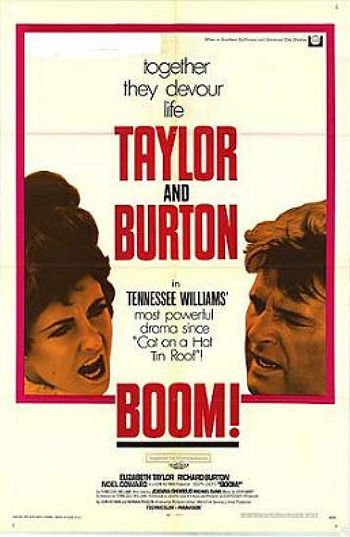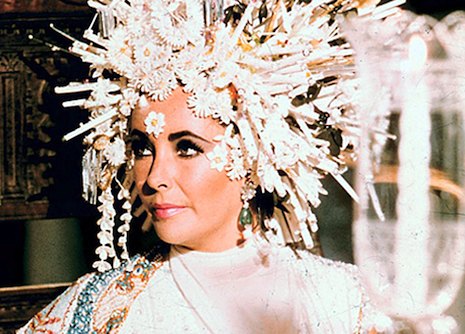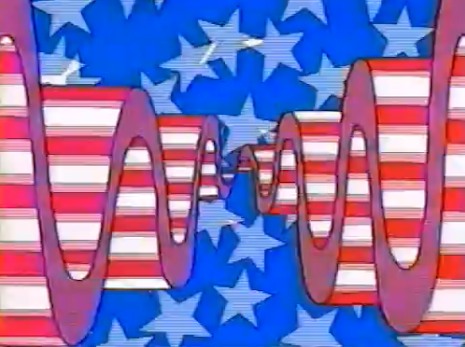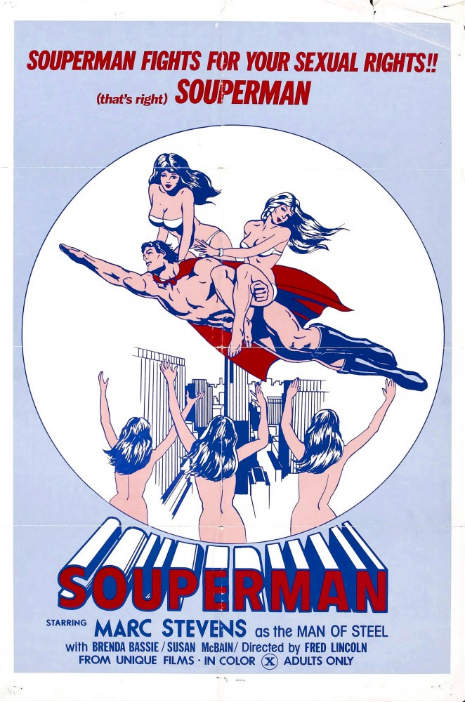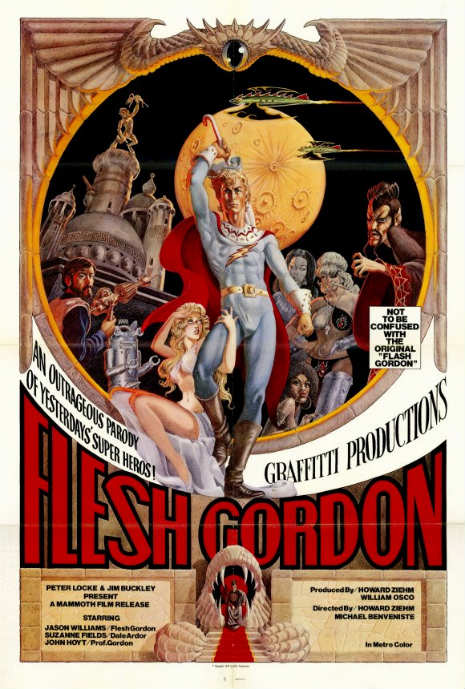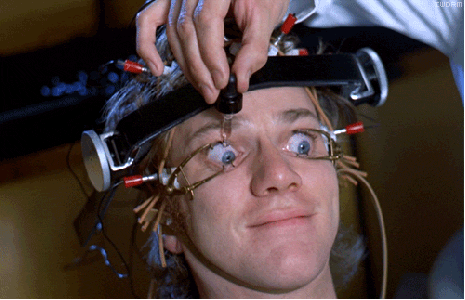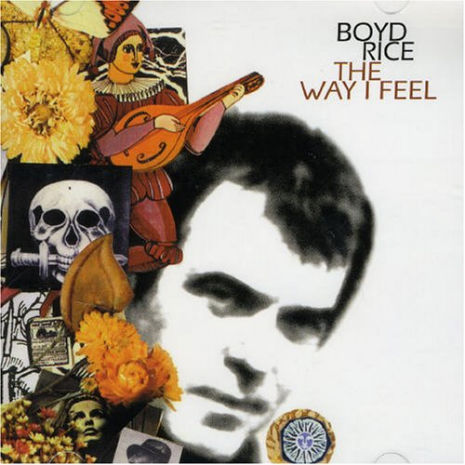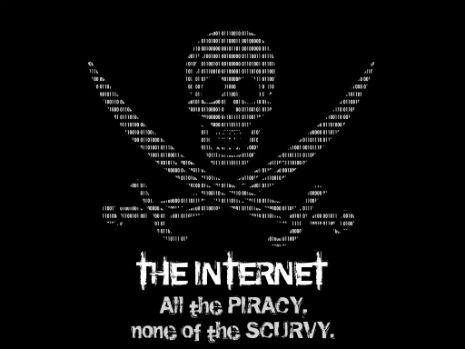
A few weeks ago, a friend of mine got a letter from Comcast informing him that they knew he’d illegally snagged The King’s Speech and asking him to refrain from future illegal downloading. The letter mentioned no recourse or anything of the sort, he told me, just, “we know what you did.”
That same week, someone else I know found his Internet browser had been commandeered by Time-Warner Cable and until he clicked on a button which said he acknowledged illegally downloading an episode of NBC’s Community he could not leave the page or do anything else. I’ve read anecdotal reports of other ISPs threatening to cancel a user’s Internet access with a “three strikes, you’re out” approach.
Knowing two people having that happen to them in the space of a week gave me pause as I had actually made a mental note to download the latest episode of Community myself! But it got me thinking about how backwards the industry’s notion still is of how to manage (or “fight” or “solve”—I’ll go with “manage”) the issue of digital piracy. I can certainly understand why the motion picture industry would want the guy downloading Oscar screeners put on notice, but a TV show? This is 2011, get real.
First off, network television programming has traditionally been free to the end user. And make no mistake about it, the TV networks are NOT in the business of making television, they are in the business of selling their advertisers a 30 second rendezvous with your retinas. To the networks, the programs are merely the things they need to hang commercials off of and often little else. So why not think of bit torrent downloads the same way?
If TV shows are “free” why even bother with someone downloading a single episode of Community? On a CPM basis, had this person opted to watch Community on regular TV or Hulu.com, the network would have made but a micro payment from the ads being seen. I realize that this adds up, of course, but until the entertainment industry finally figures out that there is very little they can do about digital piracy—it’s not even cost effective to send stinky letters, let alone bring lawsuits against individuals over micro-payments, class action suits get nowhere with this issue, and there is ALWAYS going to be another source for the illicit content files—they have little rational hope of “winning” the larger battle for the industry’s survival.
And for the life of me, I cannot understand why the networks themselves don’t simply hardcode the ads into the torrent files, have their “official” torrent downloads counted by Nielsen and just be done with it. In other words, going with the flow and not against it. I would imagine that 90% of illegal downloaders would opt for the legal torrent file, even if they had to watch a few commercials. If torrent downloads counted in the Neilsen ratings, the same way DVR’s shows now do, then Gossip Girl would be in the top ten shows on TV, if you take my point. Why hasn’t the CW wised up to this fact and used it to their advantage. It’s a strength and not a weakness!
The reason why such an obvious solution probably hasn’t been implemented is that the execs themselves to this day have very little clue of how their own kids—not to mention the junior level employees in their companies—use media. They know piracy is going on obviously, but to the extent that it does or knowing anything about the culture of private bit torrent trackers, they just don’t get it and they never will, simply because they don’t personally use it.
If younger execs were calling the shots, this wouldn’t be the case, but by the time they’d be moving into the corner offices, this will all be moot anyway. The entertainment industry, as we’ve known it for the past half century, is a walking corpse. Short of the “all you can watch” plans like Netflix, I can see almost no rational or workable solutions. The public is not interested anymore in paying for a single item of entertainment, but a reasonable priced subscription service is very attractive to the consumer and the research screams this loud and clear. Is there much hope of the movie industry surviving in its present form once DVDs (which often provide half or much more of the payday for Hollywood blockbusters) are history? As someone who spent the better part of a decade as the owner of a DVD distribution company, I’d have to say “no fucking way.”
The $20 list price of the average DVD cannot be justified for digital downloads. The best snake-oil salesmen in the business can’t make a rational argument that an invisible, weightless product that you cannot hold in your hand, wrap cellophane around or stick on a shelf should cost the same as something that can be. The public isn’t stupid, but the industry execs are, ignoring a massive migration away from their business model and failing to adapt for a model that could work for them. The movie industry is basically a lost cause, I think. It will limp on for several more years, but I predict that we’ll soon see a huge contraction in the number of films that get made. I don’t think it will be gradual either. I expect it to fall right off a cliff.
The music industry is hardly worth talking about, either, but television IS because it’s always more or less been free (at least network TV) and never relied on selling hard copies. It’s not even remotely the same business model as movies and music. However without some serious consideration for how the audience uses media—what they do with it—the television industry, too, will be greatly diminished.
In the LA Times, there’s an interesting “Dust Up” in the Opinion section’s blog pitting Andrew Keen, author of the upcoming book Digital Vertigo: An Anti-Social Manifesto and an industry advisor on the matter of piracy, against Harold Feld, who is the legal director of Public Knowledge, a Washington-based digital rights advocacy group.
Says Feld, who represents the opinions of many Internet users and online entrepreneurs:
“[C]opyright holders need to understand that the best way to stop illegal downloads is to make the content available and affordable online in ways people want it. Hollywood lobbyists usually react to this with the same enthusiasm displayed by social conservatives when suggesting that free condoms in high schools help reduce teen pregnancies—and for the same reason. It amounts to a confession that since you can’t stop the conduct, you need to figure out how to acknowledge it and limit the negative consequences.”
Says Keen, speaking up for the entertainment industry and artists within:
“[W]hy would consumers pay for Netflix, Hulu or Spotify content if all the same movies and songs can be illegally downloaded for free? And that’s, of course, why we need carefully considered, bipartisan legislation like COICA. Because without it, the United States’ entertainment industry—with its millions of middle-class jobs—is in serious jeopardy.”
Simple: It’s just easier; the quality is higher; no annoying letters or threat of your Internet being cut off… The public WILL respond favorably to the correct price point. I personally think that price point is about $20 bucks a month and bet most Netflix subscribers would agree with me on that amount. It’s a pity the entertainment moguls feel their precious content is worth more, because the public simply disagrees and has a multitude of other choices. It’s time for the entertainment industry to wake up to the reality of the current marketplace as consumer habits are pretty ingrained, especially with cyber-savvy younger people who have never spent $20 bucks on a DVD in their lives and probably never will. (And note that Keen is asking if the public will be willing to fork out for Spotify or Hulu—the basic version of these services—like network TV—are free and advertiser supported, anyway, so what’s his point?). The COICA legislation can’t do much about this stuff as there is always a workaround, technically speaking and tech will trump laws. There are laws against it now, of course.
Although both sides score, I’m squarely in Feld’s corner and once again, I will remind the reader that I owned a DVD distribution company. Andrew Keen’s heart is in the right place, but idealism doesn’t mean shit when the public can “shoplift” without ever leaving their homes. It’s just the way things are. From my vantage point as a business owner, the writing was on the wall as early as 2004. In 2011 it’s just pathetic that the industry is so damned clueless
There are three parts to the Los Angeles Times piece, which began Tuesday with “How big a risk does digital piracy pose to the entertainment industry?” came back with “Should the entertainment industry accept piracy as a cost of doing business?” and concluded today with a question that needs to be addressed, especially in this city: “What’s the true impact of illegal downloading on jobs and the arts?”
Thank you Alexandra Le Tellier!
